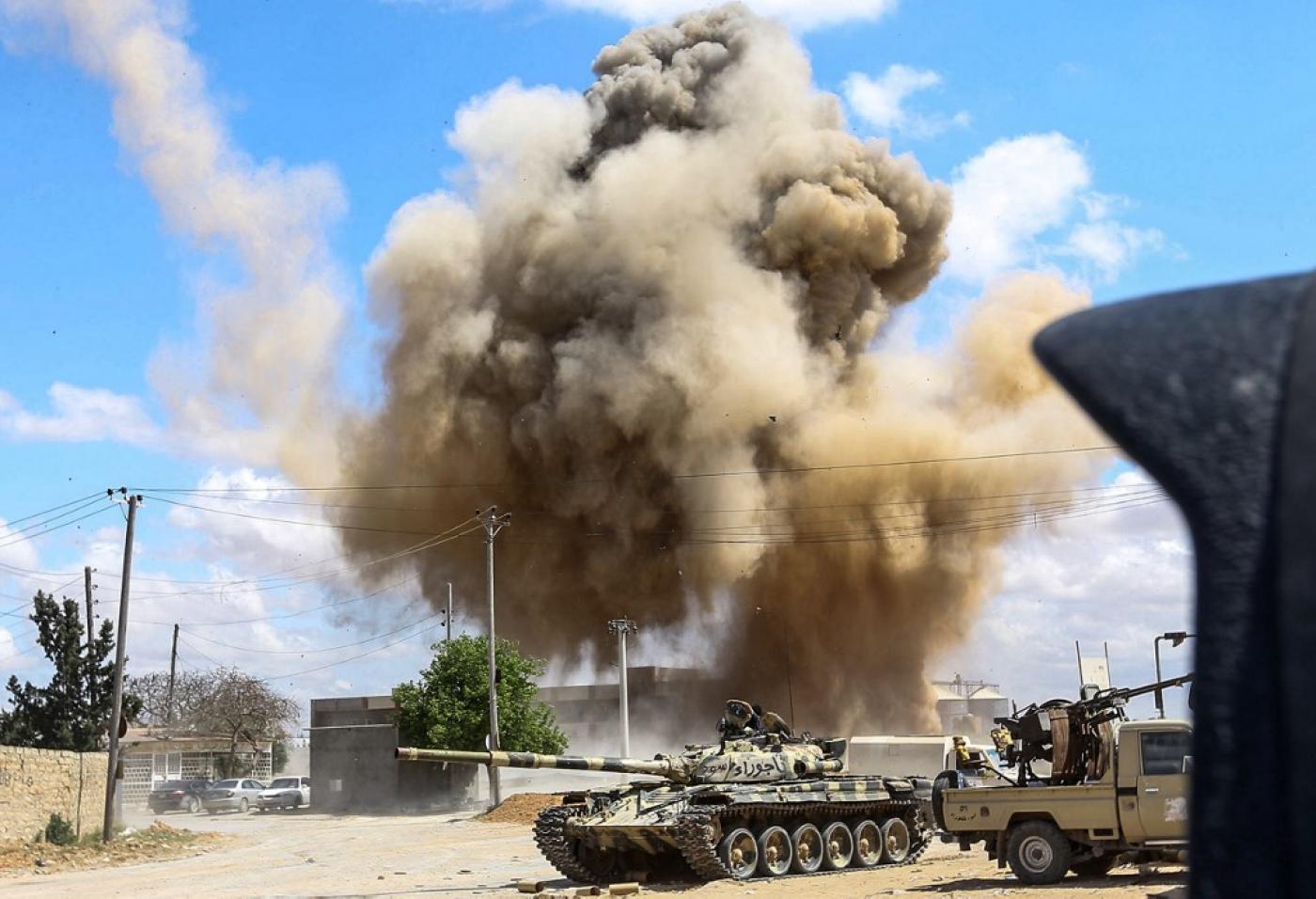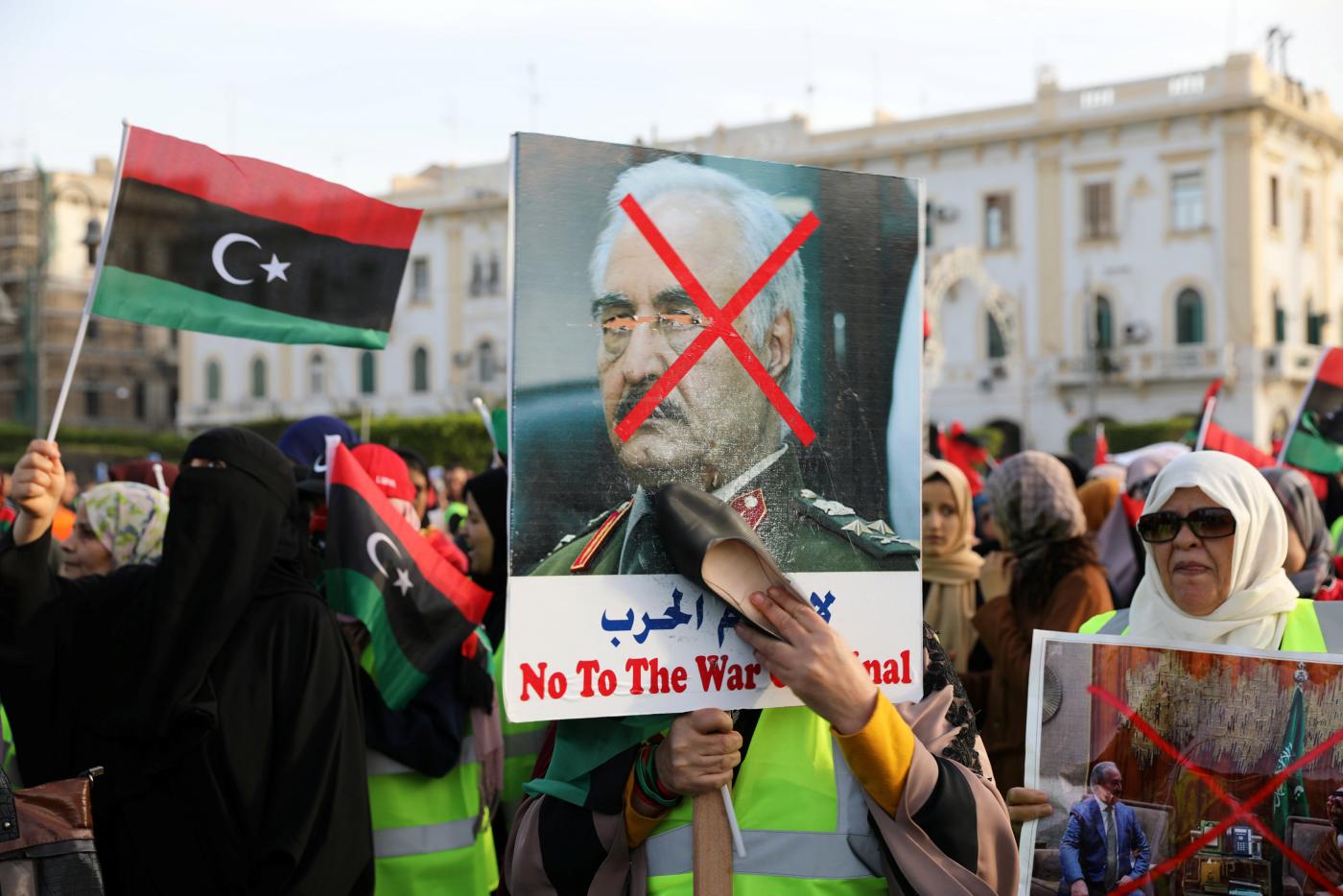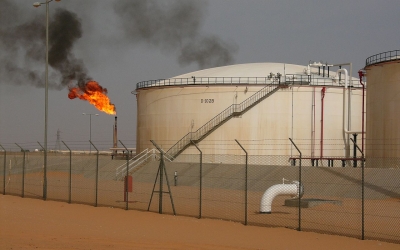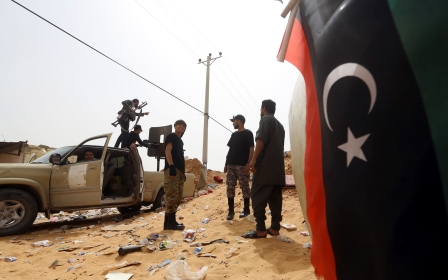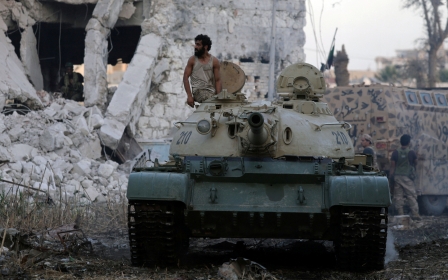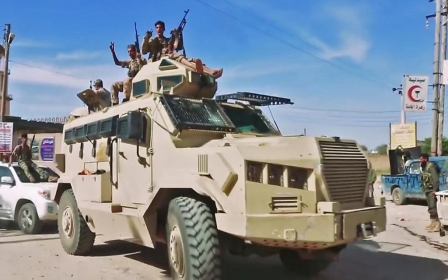From Gaddafi to Haftar: France plays both sides in Libya
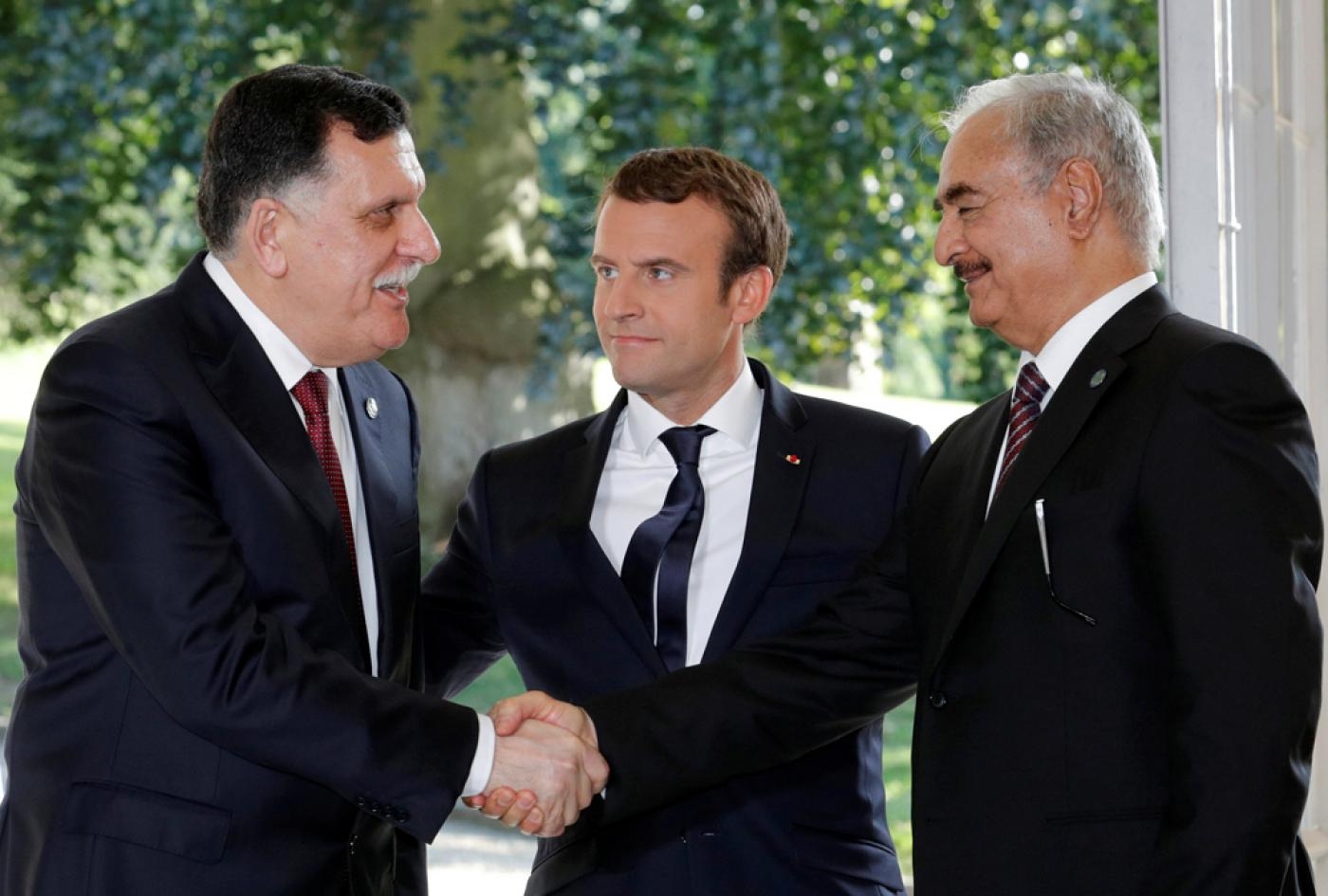
What is France’s true role in Libya? There are many questions in this regard, especially since the beginning of Khalifa Haftar’s offensive on Tripoli in April.
The offensive, led by the eastern Libyan strongman, was heralded by warning signs. Since early this year, Haftar has achieved significant breakthroughs, allowing him to dominate the Fezzan province in southern Libya.
This position, combined with his control over most of Cyrenaica province, has made him the strongest player in Libya. But it was only after Haftar tried to carry out a plan that had been in existence for at least a year - the attempt to capture Tripoli - that he faced an unexpected counteroffensive.
Ties with the enemy
What about France? Officially, Paris is committed to supporting the internationally recognised government of Libyan Prime Minister Fayez al-Sarraj, formed under the 2015 Skhirat deal. Based in Tripoli, the Libyan executive embodies institutional legitimacy and acts as Libya’s official representative.
New MEE newsletter: Jerusalem Dispatch
Sign up to get the latest insights and analysis on Israel-Palestine, alongside Turkey Unpacked and other MEE newsletters
But France has also cultivated strong relations with Haftar.
A significant indicator is the fact that French forces are operating under cover in Libya: 13 allegedly armed French intelligence officers were arrested in April on the Tunisian-Libyan border. According to Al Jazeera, sources said border guards discovered the group had communication devices that could be linked to Haftar's Libyan National Army (LNA).
Three years earlier, three French special forces officers were killed when their plane crashed in eastern Libya while flying towards Cyrenaica.
So, while Paris may claim to be dealing with the Sarraj government, it also maintains close ties with one of its enemies. This has attracted a wave of criticism against Paris since Haftar launched his offensive on Tripoli.
France is, in fact, playing both sides in Libya. As a permanent member of the UN Security Council, a protector of state legitimacy, France should support Sarraj’s government.
Paris also officially supports the UN’s efforts to resolve the Libyan crisis in a way that includes all political actors, starting with Libya’s Government of National Accord (GNA).
At the same time, France is dealing with one of GNA’s bitter enemies, Haftar. One of Libya’s main troublemakers, his strong financial and military resources have established his importance in the Libyan political landscape.
The logistical and financial support provided to Haftar by the United Arab Emirates, Egypt and most probably Russia is no secret - and this is what strengthens him, at the expense of the GNA.
Friendly relations
It is on this basis that the nature of France’s relationship with Haftar is most relevant. Paris does not want to isolate itself from the man helping it to gain influence in Libya. This is one of the motives behind France and Italy’s tensions on the Libyan issue.
While the Italians are focusing their efforts on the GNA and confining their relations with Haftar to mere protocol visits, France seems to have a far closer and more friendly relationship with the Libyan marshal. There is no ambiguity: France is simply being pragmatic and in line with its own interests, even if it would rather avoid officially recognising this.
The challenges posed by the 'migrant crisis' are obvious, as evidenced by the many attempts to reach European coasts through Libya
The troubled relationship between France and Libya is long-standing. Since 2003 and former leader Muammar Gaddafi’s decision to forego a nuclear programme, Paris has shown a keen interest in the energy and commercial opportunities provided by the Libyan market.
The diplomatic framework followed during former president Jacques Chirac’s term reached a peak under his successor, Nicolas Sarkozy. The instigator of a strong relationship between France and Libya, Sarkozy nevertheless played a key role in bringing down the Libyan leader.
The presidencies of Francois Hollande and now Emmanuel Macron are maintaining the same course: ensuring that Paris keeps a foothold in Libya.
Security considerations
The grounds for France’s involvement in Libya have never been made clear by French diplomacy, which officially asserts general statements on France’s commitment to Libya’s stability. It is nevertheless easy to understand that some of the underlying factors in this relationship go beyond France’s commitment to the “well-being” of Libyans.
Among these reasons is the migration issue, with Libya being one of the main embarkation points for many attempts to reach European coasts. France, which is not one of the most welcoming countries for asylum seekers from Africa, is thus looking for ways to contain the migratory flows through its involvement in Libya and close links with its protagonists.
Libya’s security is another obvious interest for Paris, not only because of the risks generated by Libyan instability to the European Union, but also because of the effects on Libya’s geographical neighbourhood (Tunisia, Algeria, Egypt, and above all, Chad and Niger, where G5 Sahel forces - including a French contingent - have been engaged).
While several regions of Libya are experiencing serious challenges, the situation on the western and southern fronts is the most problematic. Illegal trafficking, including arms trafficking, and radical groups circulating on both sides of the border are posing a threat to the G5 forces.
At the same time, we cannot overlook longer-term, and perhaps more classical goals. Among these is France’s will to secure privileged access to Libyan economic and energy opportunities, and of course, the preservation of diplomatic influence in Libya, which will further strengthen French interests in the region.
A necessary readjustment
Given the current situation, is Sarraj right when he accuses France of supporting a “dictator”? Obviously, yes. France’s role in Libya is clear: Paris is dealing with a set of stakeholders with interests that do not converge.
This can be regarded as the cost of pragmatism. But Haftar clearly crossed a red line when attacking Tripoli, and this will negatively affect his allies and supporters, including France.
Sarraj has always had a restrained, courteous and respectful attitude towards his interlocutors, friends and enemies alike. His accusations against France cannot be based vague suspicions about Paris’ role in Libya.
How should France react? In mid-April, the diplomatic backlash following the arrests of 13 allegedly armed men with French diplomatic passports on the Tunisia-Libya border only fuelled further speculation about France’s real role in the country.
Keeping diplomatic channels open with all Libyan stakeholders can be justified by the importance of interacting with all the protagonists. But not to condemn one of these protagonists when he is conducting disruptive actions that endanger peace is reprehensible. Paris’ half-hearted reaction to Haftar’s offensive puts France on the wrong side.
It does not take much imagination to figure out what France needs to do to rectify its position: to clearly support the GNA and maintain a critical stance towards Haftar, while at the same time restricting his military activities and his stockpiling of weapons.
This may not necessarily inflict a decisive blow or even prevent Haftar from taking action, as he is supplied through several countries.
Paris knows that no solution can be found in Libya without Haftar, but it would improve its chances of carving a path that is much more positive for Libya’s future by distancing itself from him.
The views expressed in this article belong to the author and do not necessarily reflect the editorial policy of Middle East Eye.
This piece originally appeared in the MEE French edition.
Middle East Eye delivers independent and unrivalled coverage and analysis of the Middle East, North Africa and beyond. To learn more about republishing this content and the associated fees, please fill out this form. More about MEE can be found here.



